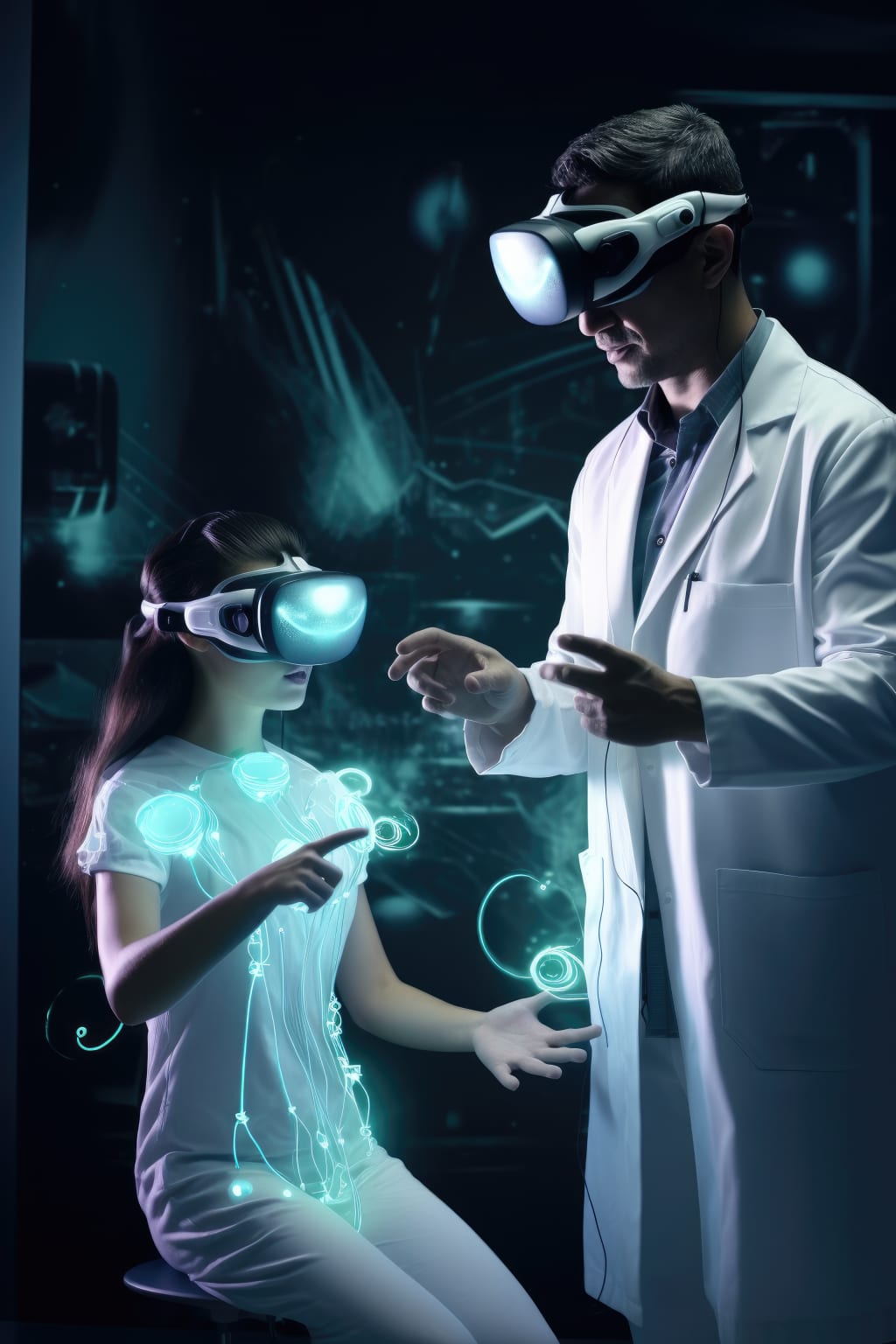HealthTech Unveiled: Exploring the Innovations Transforming Patient Care
Healthcare software development

In recent years, the healthcare industry has witnessed a seismic shift driven by technological advancements. The fusion of health and technology, often termed HealthTech, is revolutionizing patient care in ways that were once the realm of science fiction. From artificial intelligence and wearable devices to telemedicine and blockchain, HealthTech solutions are not just enhancing healthcare delivery but also transforming the entire patient's experience. Let’s delve into the fascinating world of HealthTech and explore how these cutting-edge solutions are reshaping the future of healthcare.
The Rise of Telemedicine: Bringing Healthcare to Your Fingertips
The COVID-19 pandemic acted as a catalyst for the rapid adoption of telemedicine, making virtual healthcare visits a norm rather than an exception. Telemedicine leverages video conferencing, mobile apps, and other digital communication tools to provide remote clinical services. This innovation has made healthcare more accessible, particularly for individuals in remote or underserved areas.
Patients can now consult with healthcare providers from the comfort of their homes, reducing the need for travel and minimizing exposure to contagious diseases. Telemedicine also allows for continuous monitoring and follow-up, ensuring that patients adhere to treatment plans and receive timely interventions. The convenience and efficiency of telemedicine are undeniable, making it a permanent fixture in modern healthcare.
Find details of Telemedicine App Development Solutions.
Wearable Technology: Monitoring Health in Real Time
Wearable technology has transcended its initial role as a fitness tracker to become a vital component of HealthTech. Devices like smartwatches and fitness bands now come equipped with advanced sensors that monitor various health parameters, including heart rate, blood pressure, glucose levels, and sleep patterns. These wearables provide real-time data that can be invaluable for both patients and healthcare providers.
For instance, continuous glucose monitors help diabetic patients track their blood sugar levels throughout the day, allowing for better management of the condition. Similarly, heart rate monitors can detect irregularities that may indicate potential cardiovascular issues. The data collected by these devices can be integrated with health apps and shared with healthcare providers, facilitating personalized care and early detection of health issues.
Artificial Intelligence: The Brain Behind HealthTech
Artificial intelligence (AI) is arguably the most transformative force in HealthTech. AI algorithms are being used to analyze vast amounts of medical data, identify patterns, and make predictions that aid in diagnosis and treatment. Machine learning models can sift through medical records, imaging scans, and genetic data to identify potential health risks and recommend personalized treatment plans.
AI-powered chatbots are also becoming common in-patient care, providing instant responses to medical queries and assisting in appointment scheduling. These virtual assistants can handle routine tasks, freeing up healthcare providers to focus on more complex cases. Furthermore, AI-driven predictive analytics can help in managing hospital resources, optimizing treatment protocols, and improving patient outcomes.
Blockchain: Ensuring Data Security and Integrity
In an era where data breaches and cyberattacks are rampant, blockchain technology offers a robust solution for securing patient information. Blockchain creates an immutable ledger of transactions, ensuring that data cannot be altered or tampered with. This technology is particularly useful in maintaining the integrity of electronic health records (EHRs) and ensuring the secure sharing of patient information across different healthcare providers.
Blockchain also can streamline administrative processes, such as insurance claims and billing. By providing a transparent and secure way to verify transactions, blockchain can reduce fraud and administrative costs. The decentralized nature of blockchain ensures that patient data is not controlled by a single entity, enhancing privacy and security.
3D Printing: Customizing Patient Care
3D printing technology is revolutionizing personalized medicine by enabling the production of custom medical devices and implants. From prosthetic limbs and dental implants to orthopedic implants and even bio-printed tissues, 3D printing offers tailored solutions that fit the unique anatomy of each patient. This technology allows for faster production and lower costs compared to traditional manufacturing methods.
In surgery, 3D-printed models of organs and tissues can help surgeons plan complex procedures with greater precision. Custom surgical guides and implants can also improve the accuracy and outcomes of surgeries. Moreover, researchers are exploring the potential of 3D printing to create biocompatible tissues and organs, which could one day address the shortage of organ donors.
Virtual Reality and Augmented Reality: Enhancing Medical Training and Patient Care
Virtual reality (VR) and augmented reality (AR) are making significant inroads into healthcare, offering new ways to train medical professionals and treat patients. VR simulations provide immersive training experiences for medical students and professionals, allowing them to practice procedures and surgeries in a risk-free environment. This hands-on training can enhance their skills and confidence.
AR, on the other hand, overlays digital information onto the physical world, which can be invaluable during surgeries. Surgeons can use AR glasses to access real-time data, such as patient vitals and imaging scans, without taking their eyes off the patient. This can improve precision and outcomes in complex procedures.
For patients, VR and AR can be used in therapy and rehabilitation. VR experiences can help manage pain, reduce anxiety, and provide cognitive therapy for mental health conditions. AR can assist in physical rehabilitation by guiding patients through exercises and tracking their progress.
Genomics and Personalized Medicine: Tailoring Treatments to Individual Patients
The field of genomics is unlocking the secrets of our DNA, paving the way for personalized medicine. By analyzing a patient’s genetic makeup, healthcare providers can predict susceptibility to certain diseases, understand how a patient might respond to different treatments, and tailor therapies accordingly. This personalized approach can lead to more effective and targeted treatments with fewer side effects.
Genomic data can also guide preventive care. For example, individuals with a genetic predisposition to certain cancers can undergo regular screenings and take proactive measures to reduce their risk. Pharmacogenomics, which studies how genes affect a person’s response to drugs, can help in prescribing the most effective medications based on a patient’s genetic profile.
Conclusion
The rapid advancements in HealthTech are transforming the healthcare landscape, offering innovative solutions that improve patient care, enhance efficiency, and reduce costs. From telemedicine and wearable technology to artificial intelligence and genomics, these innovations are paving the way for a more connected, personalized, and proactive approach to healthcare. As we continue to explore and harness the potential of HealthTech, the future of healthcare looks promising, with endless possibilities for improving patient outcomes and revolutionizing the way we deliver care.
Get in touch for healthcare software development.
About the Creator
Larisa Albanians
Hey, a healthcare technology solutions provider at emorphis, that is helping organizations to deliver better healthcare solutions.
Enjoyed the story? Support the Creator.
Subscribe for free to receive all their stories in your feed. You could also pledge your support or give them a one-off tip, letting them know you appreciate their work.






Comments
There are no comments for this story
Be the first to respond and start the conversation.